Filipino Pork Pata Tim – Instant Pot + Stove-top
As an Amazon Associate and member of other affiliate programs, I earn from qualifying purchases.
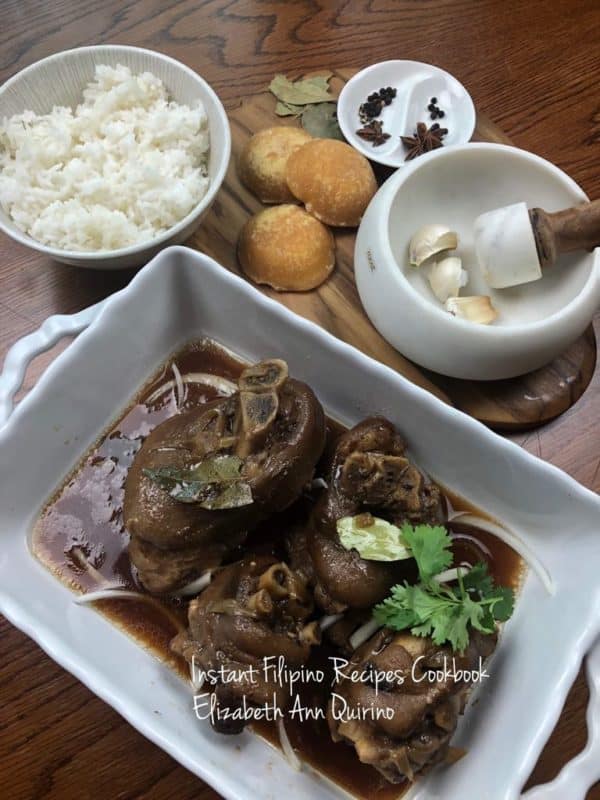
A long time ago, at my childhood home in the #Philippines, my mother cooked Pork Pata Tim patiently, for long hours on the stove-top or else outdoors in a clay pot over kindled wood. We savored the sweet-salty flavors of this pork hocks/knuckles stew poured on a bed of steaming rice for our Sunday dinners. Recently, I recreated mom’s Pork Pata Tim in the the #InstantPot, the current favorite appliance that makes life easier for home cooks like you and me. I transformed mom’s Filipino classic recipe and this cooked in less than an hour.
Filipinos are familiar with pork pata (pig’s trotters, knuckles or hocks) which are in a deep-fried crispy pata dish. But, I remember clearly back in the Philippines, how my mother cooked Pork Pata Tim and the long hours it took to cook this stew till the meat was tender. Sometimes, mom started cooking the pata on Saturday so it could tenderize in time for dinner on Sunday. As a child, I found such time-consuming methods daunting. I secretly doubted then, if I could ever cook like my mother when I grew up.
These days, in my American kitchen, I have very little time to put together a home-cooked Pinoy dish for my family. But, with the Instant Pot, these chunks of meat cooked in less than an hour. The pork pieces were fall-off-the-bone tender and the sweet-salty, fragrant sauce swirling around was as marvelous as mom’s cooking used to be.
**My Instant Pot Pork Pata Tim recipe from my cookbook Instant Filipino Recipes was featured on Positively Filipino online magazine. Click here. Or find the recipe below.
Filipino Pork Pata Tim - Instant Pot + Stove-top
Equipment
- Instant Pot multicooker - 6 quarts or 8 quarts (or any brand of pressure cooker)
- Silicone oven mitts or metal cooking accessories recommended for the Instant Pot
Ingredients
- 4 pounds pork pata (hock, knuckles, trotters); bone-in cut into serving pieces
- 1/4 cup soy sauce
- 1 Tablespoon calamansi juice or use lemon juice
- 2 Tablespoons vegetable oil
- 2 cloves garlic peeled, mashed
- 1 whole white or yellow onion chopped
- 3 star anise points (broken from 1 whole pod piece)
- 1 disc (4 ounce) panocha (or substitute 1/2 cup brown sugar) from Asian markets
- 2 pieces bay leaves
- 1/2 teaspoon black peppercorns
- 1 teaspoon salt
- 6 cups organic beef or chicken broth
- steamed rice for serving
Instructions
To cook in the Instant Pot:
- In a large bowl, marinate the pork pata in soy sauce and calamansi juice. Cover and set aside in the refrigerator for 1 hour.
- Line the bottom of the inside pot of the multicooker with vegetable oil.
- Add the pata, garlic, onions, star anise, panocha (or brown sugar), bay leaves, black peppercorns and salt. Pour the broth. Do not stir.
- Secure the lid. Check that the cooking pressure is on High and the release valve is set to Sealing. Select Manual High Pressure for 45 minutes.When buzzer sounds to announce cooking is complete, do a Quick Release. Open the lid carefully. Stir the ingredients.Serve warm with steamed rice.
To cook on the stove-top:
- Marinate the pork pata with the ingredients as directed above. Cover and refrigerate for 1 hour.Over medium-high heat, in a large stockpot, pour the vegetable oil.Add the pata, garlic, onions, star anise, panocha (or brown sugar), bay leaves, black peppercorns and salt. Pour the broth.Cover the stockpot. Boil then simmer to a medium for 2 1/2 hours or till meat is tender. When meat is cooked and soft, remove the cover. Continue cooking for 15 minutes over medium heat till sauce is reduced and has a slightly thick consistency.Serve warm with rice.
Notes on the Instant Pot:
- It takes about 17 to 20 minutes for the Instant Pot to pre-heat before the High Pressure cooking time begins. For other multicookers, check the product manual. For safety, use accessories recommended for the Instant Pot or most multicookers like silicone or metal. Do not use glassware. Read the manual for complete instructions.
Cook's comments:
- Panocha is a raw sugarcane cake in the Philippines and some Asian countries. Reddish-brown in color, it is made from boiled molasses and molded into a round disc resembling a coconut shell. In America, they are sold in Asian markets or online sources.When purchasing, the pork pata usually comes in a long, whole piece. You can ask the butcher to cut it up in serving pieces, about 3 to 4 inches each. This is a free service of most butchers which you should use.
Nutrition
Notes on Nutrition: The nutrition information provided is an estimate and will vary based on cooking methods and specific brands of ingredients used.
Did you like this recipe? I have more Filipino Instant Pot recipes in my newest cookbook Instant Filipino Recipes: My Mother’s Traditional Philippine Cooking in A Multicooker Pot by Elizabeth Ann Besa-Quirino. Buy my cookbooks and books on Amazon.com sold worldwide in paperback and Kindle format.
Hello, Friends! Please DO NOT LIFT OR PLAGIARIZE my original recipe, stories, photos or videos. All the images and content on this blog are COPYRIGHT PROTECTED and owned by my media company Besa-Quirino LLC. This means BY LAW you are NOT allowed to copy, scrape, lift, frame, plagiarize or use my photos, essays, stories and recipe content on your websites, books, films, television shows, videos, without my permission. If you wish to republish this recipe or content on media outlets mentioned above, please ASK MY PERMISSION, or re-write it in your own words and link back to my blog AsianInAmericaMag.com to give proper attribution. It is the legal thing to do. Thank you. Email me at [email protected]
Disclosure: Instant Pot is the brand name of a multi-cooker that cooks in high and low pressure. I was not paid by the Instant Pot company to mention the product or brand nor endorse it. This is not an ad. My views and opinions are my own.

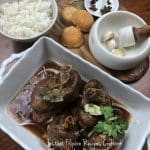

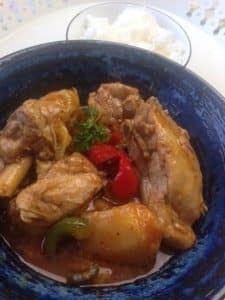
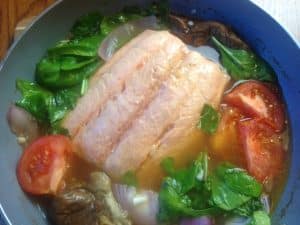
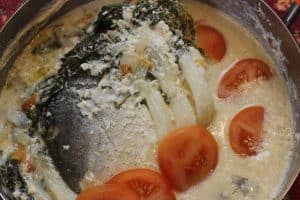
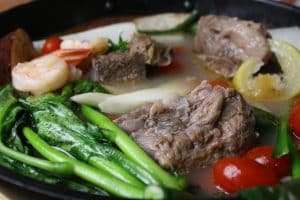

How come my patatim was pale and sauce was very thin? 🙁 was it because I used brown sugar instead of panucha?
Hi Maqui, yes that has happened to me when I used brown sugar instead. Also, in my opinion, the fat content of the pata affects the thickness of the sauce – it’s something I noticed in my own patatim.